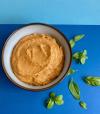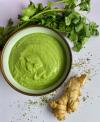
It can take a while before your bowel habits get back to normal after bariatric surgery. You may not pass bowel motions as often as you did pre-surgery, and the consistency may change. Regardless of how often you go, you want to make sure your stools are easy to pass and that you are not straining. To avoid getting into a messy situation, here are my top tips for getting your bowels back on track.
Drink enough fluids
This seems like common sense, but with a reduced stomach volume and the need to sip fluids slowly after surgery, it can be hard to get enough liquid in overall
- Try carrying a 750ml drink bottle with you and aim to get through one before midday and one before dinner
- Ignore the mixing instructions and add extra liquid to your protein shake
- Consider making iceblocks with water and lemon juice or cold brew tea (try the Red Seal brand)
- Download the ‘Baritastic’ app and set up water reminders or get the ‘Waterlogged’ app and track the number of cups you get through across the day
- If you’re struggling with the taste of water, try making water infusions with cucumber and mint, lemon and thyme, lime and sliced strawberries, or cinnamon sticks, mint and lemon
- Herbal/fruit teas can also be a great way to increase your fluid intake
Take a fibre supplement
2 tsp of Benefibre taken 1-2x per day is a great way to help soften your stools. It is tasteless and odourless and mixes easily into any liquid. Just remember, you need to be consisten and take this EVERY DAY for it to be effective. Other fibre supplement options include:
- Chewable ‘Phloe’ tablets - specifically green kiwifruit has an enzyme that helps to soften stools. Take 2-4 tablets per day
- Ground linseed/flaxseed - this adheres to the outside of your stool in the bowel and helps to draw water into it. Take 1 tsp with at least 50ml liquid e.g. mixed into your high protein yoghurt or blended into a protein shake at breakfast
- Note: I am often asked about Metamucil or Konsyl D - these are both psyllium husk fibre supplements. They tend to bulk out stools to help with bowel contraction and stool movement but can cause abdominal discomfort and bloating in some.
Review how much protein powder you are using
Protein powders can be great for boosting your protein intake, particularly in the early stages post surgery when your portions are so small. However, too much protein powder can contribute to constipation as it does not provide you with any fibre. The beauty of wholefoods is that they often provide an array of nutrients and fibre in varying amounts. If you are having difficulties moving your bowels, consider relying less on protein powders and more on foods like soups, stews and casseroles which provide both a source of protein if you add meat, chicken, fish or legumes and lots of fibre from all the vegetables.
Sneak in extra fruit and veg
The importance of getting enough protein in the diet is often emphasised after surgery, but fruit and veg are also important for bowel health. There are several ways to sneak extra fruit and veg into your meals to provide some fibre without adding too much bulk. Veg like spinach, watercress, grated courgette and carrot breaks down considerably when cooked and can be a great addition to mince dishes, soups, stews and casseroles. For breakfast try blending a green kiwifruit into yoghurt or adding some berries to plain oats. Frozen fruit and a handful of spinach can also be added to protein shakes to up the fibre content.
Try a homemade low sugar chia drink
Chia seeds are an excellent source of fibre and mixed into fluid will both hydrate and help with your bowels. We need around 25-30g of fibre per day and with nearly 6g of fibre per tbsp, chia seeds will certainly help you get on your way to achieving this target. To make your chia drink, add 2tbsp to 300ml cold brew fruit tea of choice, stir well, allow to sit for 5-10 minutes before stiring again and chilling in the fridge for 1 hr.
Do some daily movement
Whether it is a walk along the beach, a yoga session, or a body balance class, gentle movement and stretching can really help to get your bowels moving. Try to do something most days!
Consider taking a laxative.
If a laxative was prescribed to you following your opertation, it may be time to use it. There are many different types of laxatives, but it is best to take one in pill or powder form rather than liquid as the latter can be quick sweet and sickly. Speak to your GP, surgeon or bariatrician if you haven’t got one. Once your bowels are back on track, keep on top of your fluid, fibre intake and regular exercise to ensure you don’t end back at square one!


